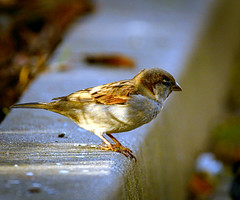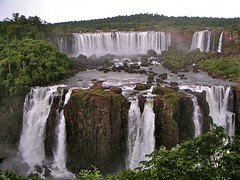Danger and Opportunity
I read a very unfortunate profanity laced Twitter rant recently explaining that a young, professional mom, (the author of the tweets,) was finished with the at home learning situation her first grade child was experiencing, and that she and her child would not be participating further in the process. I replied with my own interpretation from an educator's perspective just because I felt that this individual was way off target with hers.Let's face it, to some people everything is an emergency.
It appeared that she was overwhelmed by the volume of work that was being suggested for her child, with particular mention of math worksheets. Fair enough, however, what I believe she failed to realize is that not every young mom has (as she stated) a significant other willing to take on 50% of the responsibility to help out with the at home school work, efficient ways to run the household including a backyard garden and I assume a washer/dryer, perhaps a car to get groceries, space to social distance, etc.
She didn't seem to acknowledge that many, many less privileged parents are relying on the goodwill and caring of school based personnel to lend electronic devices, provide food, school supplies, and a variety of educational outlets to help parents who don't live her professional I can easily work from home life. What she failed to acknowledge is in the grand scheme of things, having to help her child do some learning activities at home is an opportunity, not a burden.
It appeared that she made a righteous parental choice to design her own learn at home context on behalf of her child, which is awesome, it just made me sad that she didn't have the insight to know that not all parents enjoy the privilege, have the skills, the time, or the means to do so. From my educator's perspective she seemed intent on vilifying the best efforts of teachers around the globe to keep kids connected to a learning process that they know how to provide support for. They're doing what theyknow how to d; take action.
 |
| Crisis as Opportunity (wéi ji) |
The whole episode got me thinking again of something I have thought about many, many times before... the interesting correlation and relationship between danger and opportunity. There is much literary debate about the relation/non relation and origin of two Chinese symbols, but I don't intend to take a side in this debate. My take away, despite its origin, is highly valuable in contemporary times, and especially during the current global pandemic.
A Chinese symbol for crisis is said to be made up of two parts: danger and opportunity…
There is a story of a man on a precipice...
A Taoist story tells of an old man who accidentally fell into the river rapids leading to a high and dangerous waterfall. Onlookers feared for his life. Miraculously, he came out alive and unharmed downstream at the bottom of the falls. People asked him how he managed to survive. "I accommodated myself to the water, not the water to me. Without thinking, I allowed myself to be shaped by it. Plunging into the swirl, I came out with the swirl. This is how I survived."
The old man who slipped into the river and over the water fall knew how to take the right action to preserve himself. I read into this story that a young, vibrant man may not have the wisdom and presence of mind to take the same logical and thoughtful actions that the old man did owing to his belief that he could fight the rapids and get to shore before going over the waterfall. My thought is the young man would succumb to the river. The river was just too powerful.
Taking action is important. Taking the right action is even more important.
"Iguazu Falls" (CC BY-SA 2.0) by Nouhailler
HOPE Alliance characterizes hope as an action word. Without action, hope as a construct is more akin to wishful thinking. If I want to go for a walk this afternoon, and I hope it doesn't rain, there isn't anything I can do about the fact it might rain... I have no hope because I can take no action to prevent rain. I can't put any action into motion to increase my opportunity to go for a nice, rain free walk.
More than any other biological species, it appears that humans are born to take action. Taking action is how we enable learning in so many different, and natural contexts. We are in constant motion; traveling in simultaneous physical, psychological, emotional and cognitive realms. In his book, The Adolescent Brain: Reaching for Autonomy, Robert Sylwester characterizes this need to be in motion...
The planning, regulation, and prediction of movements are the principal reasons for a brain. Plants are as biologically successful as animals, but they don’t have a brain. An organism that’s not going anywhere of its own volition doesn’t need a brain. It doesn’t even need to know where it is. What’s the point? Being an immobile plant does have its advantages however. Plants don’t have to get up every day and go to work because they’re already there.
On the other hand, if an organism has legs, wings, or fins, it needs a sensory system that will inform it about here and there, a make-up-its-mind system to determine whether here is better than there or there is better than here, and a motor system to get it to there if that’s the better choice – as it is, alas, when we have to go to work.Going to work is purposeful. We choose work that we believe will help us move in a desirable direction for good. We do well by doing good with our work. There is no more important time to do good work than during times of crisis. This, essentially is the message humankind needs to heed now more than ever.
In a time when there is much beyond our control to deal with the COVID19 pandemic crisis, there is no purpose in wishful thinking, and great purpose in actionable hope.
People of the world who undersand how to put good work in motion need to do that right now. People who don't need to learn from their leadership. HOPE Alliance suggests several good actions we all can take, or learn to take to move in positive, opportunistic directions so we prevail as more resilienent and purposeful after the pandemic has passed.
- Heed the warnings and recomendations of experts, and practise what they are preaching, in particular the big five:
- Everyone should frequently wash their hands (and wash them thoroughly, with soap);
- Maintain at least one metre distance from anyone coughing or sneezing, and avoid physical contact when greeting;
- Avoid touching our eyes, nose and mouth;
- Cover the mouth and nose with a bent elbow or disposable tissue when coughing or sneezing;
- Stay home and seek medical attention from local health providers, if feeling unwell.
- Reconnect with family and friends in authentic ways
- Have meaningful conversations designed to increase understanding about how loved ones are feeling emotionally, use this time of quiet to talk to people (of course through digital means and social media but also perhaps through fun, more traditional means like good old fashioned letter writing).
- Write
- Keep a journal, a blog, a notebook... write down your thoughts as refelctive self care..
- Read
- "I never had time to read anymore..." well, now you do.
- Learn
- to do things better, or how to do something completely new
- Seek support/provide support
- Be ok with how you might not be doing so well with all of the unanticpated and difficult to deal with stuff going on in the world right now.
- Understand that as much as you might be struggling, others may look to you for strength and support. Be prepared to be tough and available for those less stable as you.
- Above all, be in motion...
- Whether jumping off a curb, or jumping off a cliff, we all need to be jumping right now. Being still is fine as long as it's purposeful. Meditation is purposeful. Relaxation is purposeful.
Reference:
Sylwester, Robert. The Adolescent Brain: Reaching for Autonomy. Hawker Brownlow Education, 2008.




Comments
Post a Comment